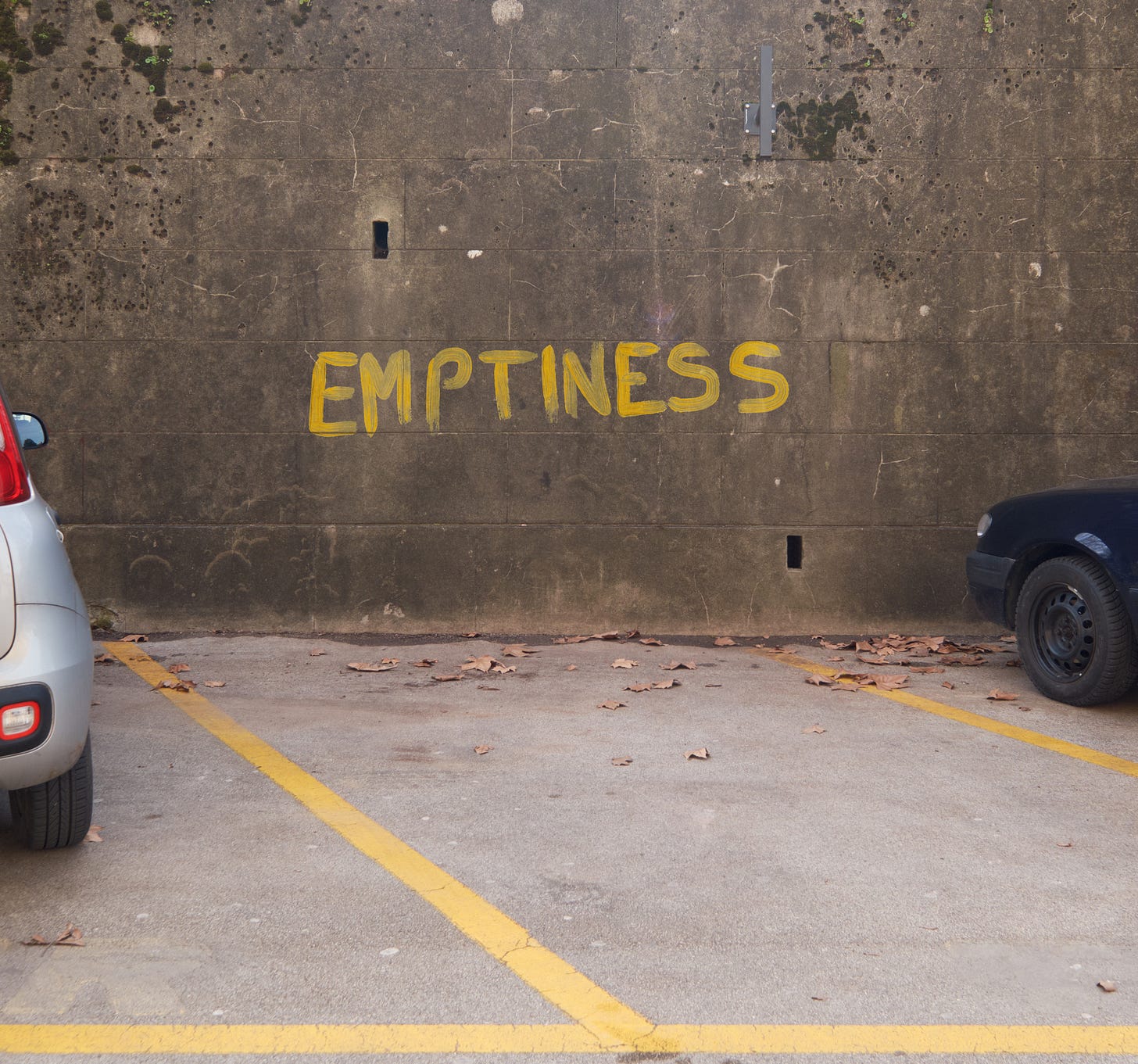Self-administering psychedelics to treat OCD; California psychedelics bill on pause, Massachusetts ballot initiatives filed; and new guidelines for psychedelic practitioners
Plus: The murky future of ketamine telehealth, and nihilism and psychedelics
Happy Friday, and welcome back to The Microdose, an independent journalism newsletter brought to you by the U.C. Berkeley Center for the Science of Psychedelics. Here’s what’s happened in the psychedelics world so far this August:
Self-administering psychedelics to treat OCD
For people with obsessive compulsive disorder (OCD), finding the right treatment can be difficult. While therapy and selective serotonin reuptake inhibitors (SSRIs) can help symptoms, that treatment does not work in up to 40% of people with OCD. But according to survey results published last week in Nature Scientific Reports, psychedelics might help people with OCD reduce their symptoms.
The study included 174 people with OCD symptoms who use psychoactive drugs. Eighty four percent of respondents reported using classic psychedelics including LSD and psilocybin. Of those, 66% reported that those classic psychedelic drugs were the most effective at reducing their OCD symptoms. Seventy two percent of the respondents reported using MDMA, but just 15% of those people said the drug worked to reduce their symptoms. “A higher proportion of participants chose classic psychedelics as the most efficient for OCD symptoms when compared to other substances,” the authors wrote. “The self-assessment of the therapeutic effect makes it prone to subjectivity bias, but a vast majority of classic psychedelics users, in our sample, perceived an improvement in their medical conditions following the intake of the substance.”
The State of Psychedelics: California bill “on suspense file,” Massachusetts ballot initiatives filed
Last week, the California Assembly’s Appropriations Committee placed Senate Bill 58 “on suspense file” — effectively tabling further discussion until a special hearing to discuss its cost and the state’s budget. The bill would make it state-legal for people over 21 to possess, prepare, obtain, and transport the following psychedelic substances: mescaline (excepting peyote), DMT, ibogaine, psilocin, and psilocybin.
Over the summer, SB 58 has been making its way through the California Legislature, and most recently passed from the Assembly’s Health Committee to its Appropriations Committee. Bills are placed on suspense file if the Appropriations Committee determines that the cost will exceed $150,000.
On the other side of the country, Massachusetts for Mental Health Options officially submitted two potential ballot measures to the state outlining plans for what the group calls the Natural Psychedelic Substances Act. The initiatives are sponsored by New Approach PAC, which also supported successful initiatives in Colorado and Oregon. Both versions would allow people over 21 to consume DMT, mescaline, ibogaine, psilocybin, or psilocyn under supervision at licensed service centers and would establish a commission and an advisory board to implement the measure.
The two versions differ in one detail: their approach to home use of psychedelics. One version explicitly allows for the cultivation or processing of “plants or fungi capable of producing a natural psychedelic” so long as the cultivation area is no larger than 12 feet by 12 feet, and that any psychedelics exceeding an amount for personal use are “secured from access” by people under 21.
To advance either bill, organizers will need to secure nearly 75,000 signatures by mid-December. Grassroots groups including Bay Staters for Natural Medicine are publicly supporting the version of the act that allows for home grows.
Want the latest psychedelics news? Subscribe! (It’s free!)
New guidelines for psychedelic practitioners
The American Psychedelic Practitioners Association recently released professional practice guidelines, making the APPA the first practitioners’ organization to publish detailed guidance on facilitating psychedelic-assisted therapy. The document, published in partnership with mental health advocacy group BrainFutures, includes 12 guidelines. They range from straightforward requirements such as requiring that practitioners are in good standing with their discipline’s licensing and certifying bodies and have training to provide psychedelic-assisted therapy, to more complex and hard-to-define guidelines such as supporting patients in “understanding and making meaning of their psychedelic medication experience” and facilitating “a safe and therapeutic medication administrative session.”
The murky future of ketamine telehealth
The U.S. Drug Enforcement Administration published a public meeting notice in mid-August announcing a series of public listening sessions about prescribing controlled substances through telemedicine, which would affect the ketamine industry. COVID emergency rules allowed physicians to prescribe controlled substances including ketamine via telehealth appointments. When the federal government’s COVID emergency declaration ended this spring, the DEA proposed a new rule extending COVID telemedicine policies. At the same time, the agency cracked down on physicians prescribing mail-order ketamine. The meeting notice suggested possible paths forward for telehealth prescriptions, like requiring practitioners to report prescription data to the DEA, and even creating a special registry for telemedicine practitioners that would allow them to prescribe medications entirely online.
Nihilism and psychedelics
As academic researchers amass evidence that psychedelics can help treat symptoms associated with mental health issues such as depression and anxiety, two psychologists have written a paper asking whether those apparently positive outcomes are the result of treating the symptoms themselves, or something deeper and more pervasive: a widespread sense of meaninglessness. In a paper published in Frontiers in Psychology, Patric Plesa and Rotem Petranker of Slippery Rock University of Pennsylvania and McMaster University, argue that “an integral part of the excitement around the resurgence in psychedelics is in response to a meaning and alienation crisis that correlates with rising rates of anxiety and depression.”
Plesa and Retranker explore the history of neoliberalism and nihilism and draw connections between these belief systems and the growing popularity of psychedelics. They emphasize the importance of not only set and setting, but also the cultural-social context, or matrix, in which people receive psychedelics. The matrix includes values, beliefs, social norms, friends, family members, work environment — and in the modern day, the matrix often includes feelings of loneliness, alienation, and a lack of meaning.
Psychedelics can offer an opportunity for connection and meaning-making; users often report a stronger sense of connectivity and well-being after their trips. The authors suggest that these feelings might be further enhanced by group psychotherapy and that psychedelic scholarship should more seriously consider large-scale, cultural-social systems thinking. “The current focus on set and setting should expand to contain the matrix of meaninglessness and encourage an engagement with these feelings via “neonihilism” – a confrontation with meaninglessness,” they write. “Without such considerations, psychedelic psychotherapy may only temporarily solve felt meaninglessness without addressing its underlying cause.”
A free version of University of California, Berkeley professor David Presti’s 10-week long Psychedelics and the Mind course is available through MOOC course site EdX.org.
The Psychedelic Club of Denver is holding its first-ever Psychedelic Cup, a mushroom-judging competition.
Alta profiles Southern California ayahuasca church Hummingbird.
“Psychedelics are not the solution for everyone, but they should be both available and accessible to all,” Preeti Simran Sethi writes in a piece for DoubleBlind explaining the history of Asians and psychedelics.
On her BBC podcast “At Your Service,” pop star Dua Lipa interviews Amanda Feilding, a decades-long psychedelics proponent and founder of the psychedelic research non-profit The Beckley Foundation and related for-profit businesses.
Psychedelics business site reMind released a market analysis of psychedelic clinics and retreats, written by Psychedelic Alpha founder Josh Hardman. The report shows huge growth in the number of psychedelic retreats over the last decade, and notes that the general price range of these retreats — anywhere from $1,000 to more than $14,000 (not including travel) — make attendance feasible only for those with significant expendable income.
Willamette Week reports that the Oregon Higher Education Coordinating Commission (HECC) has issued a cease and desist order against psilocybin training program Myco-Method. All psilocybin training programs must be accredited by HECC, but Myco-Method has not done so, claiming that it is exempt from that requirement. The state commission disagrees.
Lucid News reports on how the Minneapolis-based grassroots group DecriMN worked behind the scenes to pass the mayor’s executive order deprioritizing enforcement of laws related to use of entheogenic plants and fungi.
You’re all caught up! Have a great weekend. We’ll be back in your inbox on Monday with a new issue of 5 Questions.
If you know anyone who might like the latest on psychedelics in their inbox, feel free to forward this to them, or click below.
Got tips? Email us at themicrodose@berkeley.edu.








Thank you